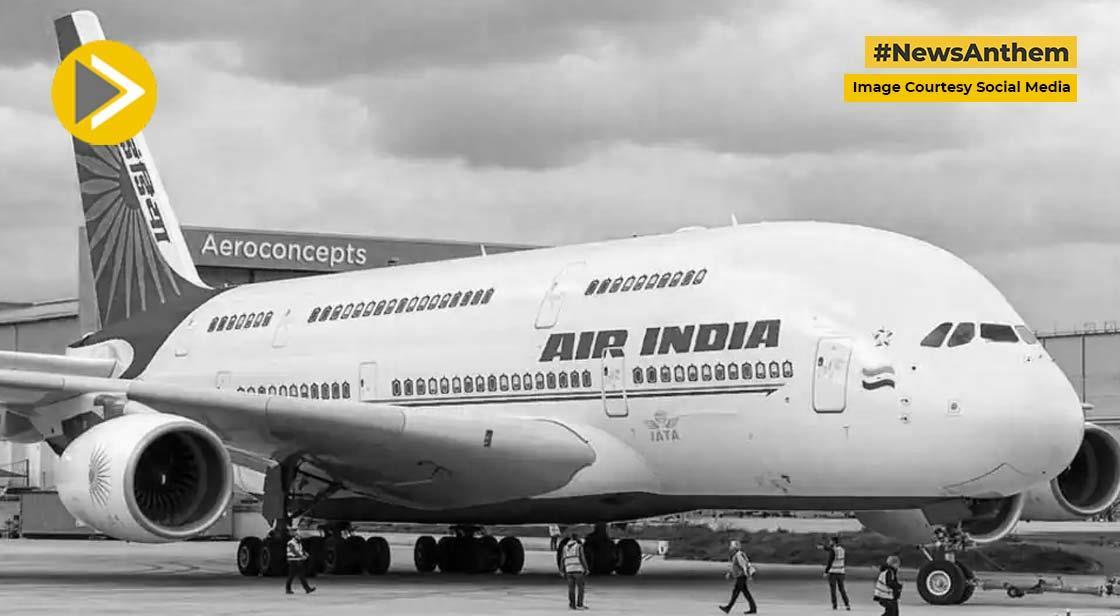Air India Completes The $70 billion, 470-Plane Largest Aircraft Deal In History

News Synopsis
Air India announced on Tuesday that it had placed an order for 470 aircraft, the largest single-tranche aircraft purchase in history, a year after acquiring the Tata group: 250 with the European aircraft manufacturer Airbus and 220 with the American behemoth Boeing.
It has surpassed American Airlines' 2011 order for 460 planes by accomplishing this. The aircraft deal is worth more than $70 billion at the list price.
Air India has placed an initial order for 40 wide-body A350 aircraft and 210 aircraft from the A320neo family from Airbus, with the option to expand the quantity.
The airline has placed orders with Boeing for 190 narrow-body B737MAX planes, 20 wide-body B787 planes, 10 wide-body B777X aircraft, and an additional 20 B787 and 50 B737MAX aircraft.
A wide-body aircraft can travel directly across greater distances, such as routes between India and the United States, thanks to its larger fuel tank.
Along with placing an order for aircraft, Air India also reached agreements with three engine suppliers: CFM International for narrow-body A320/B737 planes, GE for Boeing 777x/787 planes, and Rolls-Royce for A350 planes.
In the second half of 2023, 25 Boeing 737s and six Airbus A350-900s will be the first planes to arrive. The last time Air India placed an order was in 2006, when it reserved 111 aircraft, including 68 from Boeing and 43 from Airbus.
Emmanuel Macron and Prime Minister Narendra Modi spoke via video call on Tuesday about the Airbus-Air India deal. He referred to it as a "landmark deal," showing not only the close relations between France and India but also India's achievements and expectations in the civil aviation industry.
US Vice President Joe Biden referred to the Boeing-Air India deal as "historic" in a statement.
“This announcement also reflects the strength of the US-India economic partnership. Together with Prime Minister Modi, I look forward to deepening our partnership even further as we continue to confront shared global challenges — creating a more secure and prosperous future for all of our citizens.” stated Biden.
The order from Air India follows months of protracted talks between the airline, aircraft makers, and original equipment manufacturers of engines. This deal has been hailed as evidence of increased trust and cooperation between India, France, and the US.
N Chandrasekaran, chairman of Tata Sons, who was present on the aforementioned video call, stated that Air India was going through a "massive transformation" and needed a modern, effective fleet to support it.
“Today, I am happy to say that we have signed a letter of intent to acquire 250 aircraft from Airbus. 40 of them would be wide-body A350 aircraft that we will use to fly all ultra-long distances across the globe. 210 will be narrow-body aircraft. We also have significant options to increase the fleet order once we grow,” Chandrasekaran said.
He stated that Air India was attempting to expand its collaboration with Airbus and that one of their goals for the nation was to eventually introduce commercial aircraft manufacturing.
The "most significant moment" for Air India, Indian aviation, and the Indian manufacturing industry, according to Chandrasekaran.
The A350 aircraft will replace the A320neo as the new flagship for transcontinental travel when the time is perfect, according to Guillaume Faury, chief executive officer (CEO) of Airbus. The A320neo will continue to be the flagship for domestic and regional operations.
According to him, "Make in India" is the heart of Airbus' Indian strategy. Many of the components for the Air India planes will come from Indian firms, he said, even if they will ultimately be put together in France and Germany.
Faury said, "The critical technologies will come and we are going in that direction from the Airbus India Engineering Centre in Bengaluru,”
“Besides this deal being of unprecedented size it was also incredibly complex with two airfamers and six engine suppliers jostling for position.” Air India CEO Campbell Wilson wrote in an email to the company's employees.
You May Like









